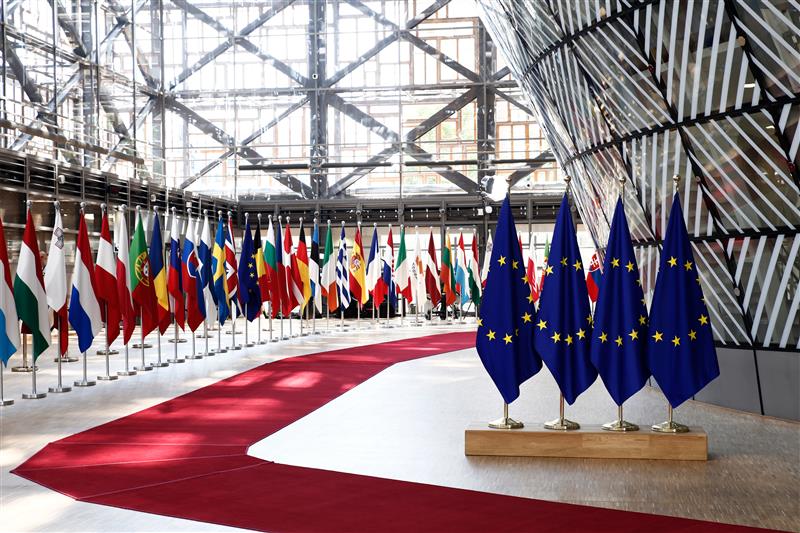The EU has made great strides in recent years to combat foreign information manipulation and interference (FIMI), but these efforts have too often neglected the acronym’s second “I”. This is regrettable, given that, over that same period, several foreign authoritarian regimes have resorted to malign finance and corruption to undermine democratic processes on the continent. In Brussels alone, financial scandals such as Qatargate, the Voice of Europe incident, and Huawei’s questionable lobbying practices have highlighted the extent to which EU institutions and even the European Parliament remain susceptible to corruption.
Initially proposed in 2023, the EU’s Anti-Corruption Directive was meant to address this vulnerability. After making its way through the institutions’ meandering legislative processes, the text was expected to be finalized before Poland’s European Council presidency ended in June 2025. Several key member states’ objections put a wrench in this and, as the institutions wind down for the summer, the directive now risks falling off the legislative agenda by September, when policymakers return.
Corruption As a Tool of FIMI Operations
Several recent scandals highlight how foreign governments and proxies exploit Europe’s fragmented legal framework to influence EU decision-making, demonstrating the urgency of harmonized anti-corruption rules and stronger enforcement tools.
In December 2022, Belgian police arrested multiple members of the European Parliament (MEPs) and staffers in connection with an alleged bribery and money laundering scheme involving Qatar and Morocco. Despite widespread public attention, criminal convictions have yet to be secured, underscoring the difficulty of prosecuting cross-border corruption in the absence of unified EU standards. Russian diplomats and state media have since weaponized this scandal to attack the bloc’s international pro-democracy advocacy.
Before to the 2024 European Parliamentary elections, multiple investigations found that individuals affiliated with Russia had paid EU politicians to support the Kremlin’s foreign-policy positions. In the most high-profile of these cases, Czech authorities accused Prague-based Voice of Europe, a news site, of paying Euroskeptic politicians in several EU countries, including Germany, France, Poland, Belgium, the Netherlands, and Hungary, to spread anti-Ukraine sentiment and influence the elections.
The People’s Republic of China (PRC) has also resorted to bribery to gain influence in the EU. In May, German prosecutors stripped Maximilian Krah, the lead candidate of the Alternative for Germany (AfD) party in the 2024 European elections, of his parliamentary immunity due to “money laundering in connection with Chinese payments”. Two months earlier, reports emerged that up to 15 current and former MEPs had received gifts from Chinese tech giant Huawei in exchange for political support on digital infrastructure and surveillance regulation, among other issues. The European Parliament and the European Commission banned Huawei lobbyists from EU premises, but the case highlights the absence of consistent sanctions for officials who accept foreign-linked inducements. There are still other avenues open to Huawei to continue its outreach in the institutions, notably via the trade associations in which it remains involved.
EU institutions are far from the only target of PRC activity. In December 2023, former Belgian senator Frank Creyelman was expelled from his party following allegations that he had accepted bribes from the PRC’s Ministry of State Security to influence European discussions. Despite clear evidence, there were no offenses under which he could be prosecuted under Belgian law. This incident makes a good case for a consistent European legal framework that would increase the costs of engaging with foreign actors for personal profit.
The Anti-Corruption Directive
Despite these recent high-profile incidents and the EU’s estimate that corruption costs it more than €120bn annually, few cases have led to successful prosecutions. The current legal framework remains highly fragmented and vulnerable to manipulation, with national definitions of corruption, enforcement practices, and penalties varying widely. To address these weaknesses, the Anti-Corruption Directive focuses on four key areas.
First, the directive would create uniform definitions of corruption offenses across the EU, including bribery, misappropriation, trading in influence, abuse of functions, and illicit enrichment. By aligning EU law with the UN Convention Against Corruption (UNCAC), it would eliminate loopholes that currently allow officials to evade accountability based on inconsistent national standards.
Second, the proposal would significantly increase the maximum penalties for corruption-related crimes and introduce non-criminal sanctions, such as disqualification from public office and exclusion from public funding. These reforms would help deter policymakers from accepting illicit payments from state-linked entities and foreign interest groups.
Third, the directive would require EU member states to adopt and regularly update national anti-corruption strategies in consultation with civil society and anti-corruption experts. It also proposes the creation of an EU-level Anti-Corruption Coordinator to improve cross-border cooperation and oversight. This structure would be crucial for addressing the transnational dimension of corruption in Europe, ensuring that member states’ threat awareness matches the cross-border scope of authoritarian regimes’ foreign interference campaigns.
Finally, in addition to punitive mechanisms, the directive encourages preventive reforms, such as conflict-of-interest rules, asset-disclosure obligations, and stricter regulation of interactions between the public and private sectors. Civil society would play a key role in the design and monitoring of these frameworks, ensuring that anti-corruption efforts are transparent and more resistant to political interference.
Taken together, these measures could restrict some of the opportunities for foreign interference in the EU. Harmonizing legal definitions would close jurisdictional loopholes for strategic corruption. Stronger sanctions would deter inducements from actors such as Russia or Chinese tech giants. Strategic coordination would identify repeated patterns across borders. And by involving civil-society organizations, the EU would increase its resilience against covert influence activities and build processes that contribute to a whole-of-society response against FIMI.
Conclusion
As of this summer, the process for the adoption of the Anti-Corruption Directive has stalled after some member states, including Italy, Germany, and Hungary, objected to specific aspects of the package. Italy, for example, opposes the criminalization of abuse of office, while Germany takes exception to the systematic collection of corruption data and to the creation of national anti-corruption strategies. Civil society has warned that the directive could fail to regain its impetus under the new Danish presidency.
Given the ease with which foreign authoritarian actors have capitalized on holes in the EU’s anti-corruption defenses to further their interests in recent years, giving up on this reform would be a serious mistake. The Anti-Corruption Directive can close the gaps afforded by the diversity of anti-corruption laws across member states and make it easier to bring charges and secure prosecutions against those caught red-handed. Without it, Europe will leave itself open to continued attempts by foreign authoritarian actors to use money and corruption as weapons to undermine democracy.
The views expressed in GMF publications and commentary are the views of the author alone.






